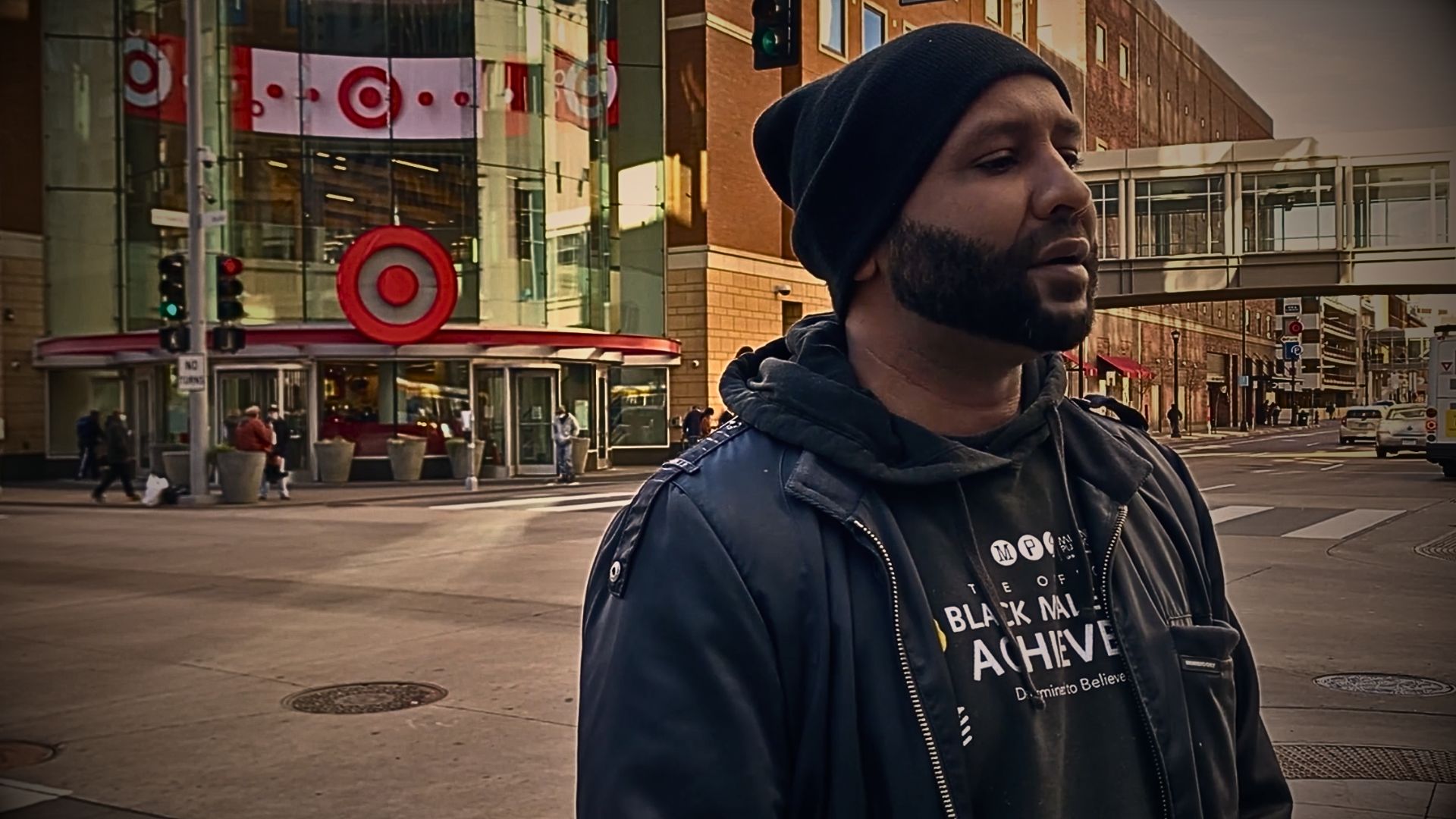(HKR-01-18-25): On a recent episode of Hard Knock Radio, host Davey D sat down with Minneapolis-based educator and freelance journalist Marjaan MJ Sirdar. They talked about his 12 part series 21st Century Jim Crow in the North Star City .
The conversation explored Target’s history with law enforcement, racialized surveillance, and public policy influence. Target is ending its DEI initiatives. Sirdar’s research shows the company still commits to racialized policing.
Target’s Retreat from DEI
Recently, Target announced the removal of its DEI policies, ceasing displays for Black History Month, Women’s History Month, and LGBTQ+ celebrations. While some viewed this as a response to political pressures, Sirdar’s research suggests that Target’s policies were performative from the start.
“They were really working vehemently against the interests of Black folks,” Sirdar explained. “Everything they were doing off record was anti-Black to the core.”
The 21st-Century Jim Crow Policing Model
Sirdar’s 12-part investigative series, 21st Century Jim Crow in the North Star City, published on Unicorn Riot, exposes how Target has played a major role in urban policing. According to his findings, Target helped fund local law enforcement and prosecutors in Minneapolis, creating a surveillance network that disproportionately targeted Black youth.
“In 2003, Target built state-of-the-art crime labs,” Sirdar revealed. “They quickly became a leader in surveillance, opening their labs to the FBI, CIA, NSA, and even ICE.”
Surveillance, Facial Recognition, and Corporate Policing
One of the most alarming findings in Sirdar’s investigation is Target’s development of a mass surveillance system. This includes high-tech security cameras, facial recognition technology, and partnerships with law enforcement agencies across the country.
“Target has files on you, your children, and even knows what time is on your watch at checkout,” said Sirdar. “They’ve built a system where they track individuals, compiling data that police later use to justify arrests.”
Target’s collaboration with law enforcement didn’t stop at technology. The corporation has actively funded city prosecutors and influenced criminal justice policies that disproportionately impact marginalized communities.
The “Downtown 100” Program and Racialized Policing
In Minneapolis, Target supported a policing initiative called the “Downtown 100” program. Under this initiative, individuals were tracked not for crimes committed, but for how frequently they had encounters with police. Many of those placed on the list were Black youth and homeless individuals.
“This program was supposed to reduce crime,” Sirdar said. “Instead, it became a feeder program from the streets to prison.”
Even minor infractions—such as loitering, spitting on the sidewalk, or jaywalking—could lead to individuals being placed on this list and eventually banned from downtown.
Crime Narrative Manipulation and Store Closures
Target has also been a key player in pushing crime panic narratives. The company has claimed staggering losses due to retail theft, sometimes reporting figures that exceed $1 billion annually. However, Sirdar’s analysis raises serious doubts about these claims.
“If you divide that $1 billion by 2,000 stores, that’s over $500,000 in theft per store per year,” Sirdar noted. “That’s an impossible number when you consider their top-tier security.”
The company’s claims of rampant theft have been weaponized to justify store closures in predominantly Black and Brown communities, reinforcing harmful stereotypes about urban crime.
Conclusion: A Call for Greater Scrutiny
Sirdar’s reporting reveals that Target’s influence extends far beyond retail. It has positioned itself as an unofficial law enforcement entity, funding local prosecutors, developing cutting-edge surveillance, and shaping urban policing policies that disproportionately harm Black and Brown communities.
“Target isn’t just a retail giant—it’s a corporate police force,” Sirdar concluded. “If people are serious about holding them accountable, they need to look beyond their DEI initiatives and into their deep ties to law enforcement.”
For those interested in learning more, Sirdar’s investigative series can be found on Unicorn Riot.
Hard Knock Radio will continue to highlight critical conversations that expose the intersection of corporate influence, policing, and racial justice. Stay tuned for more insightful discussions with leading voices in investigative journalism and activism.


Leave a Reply